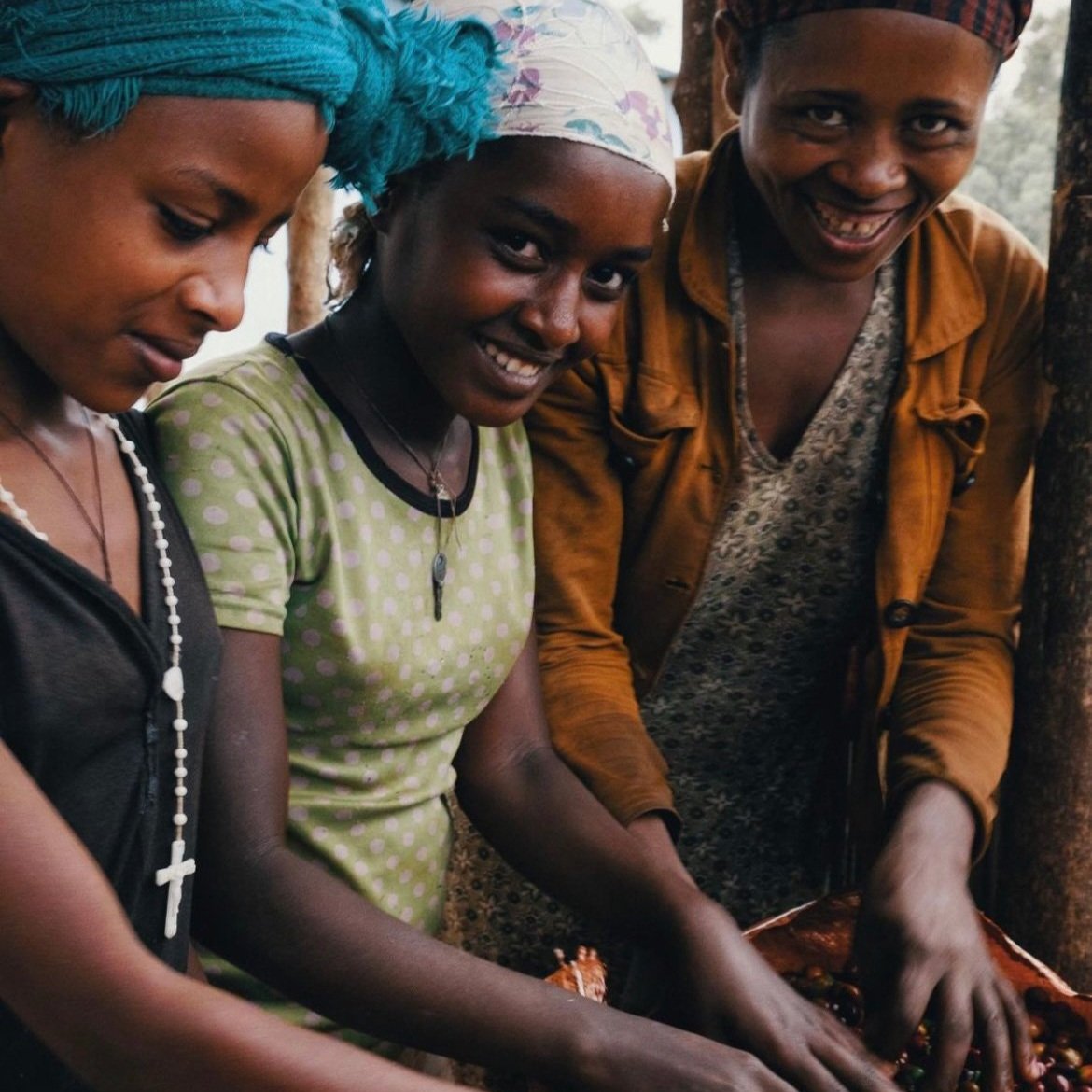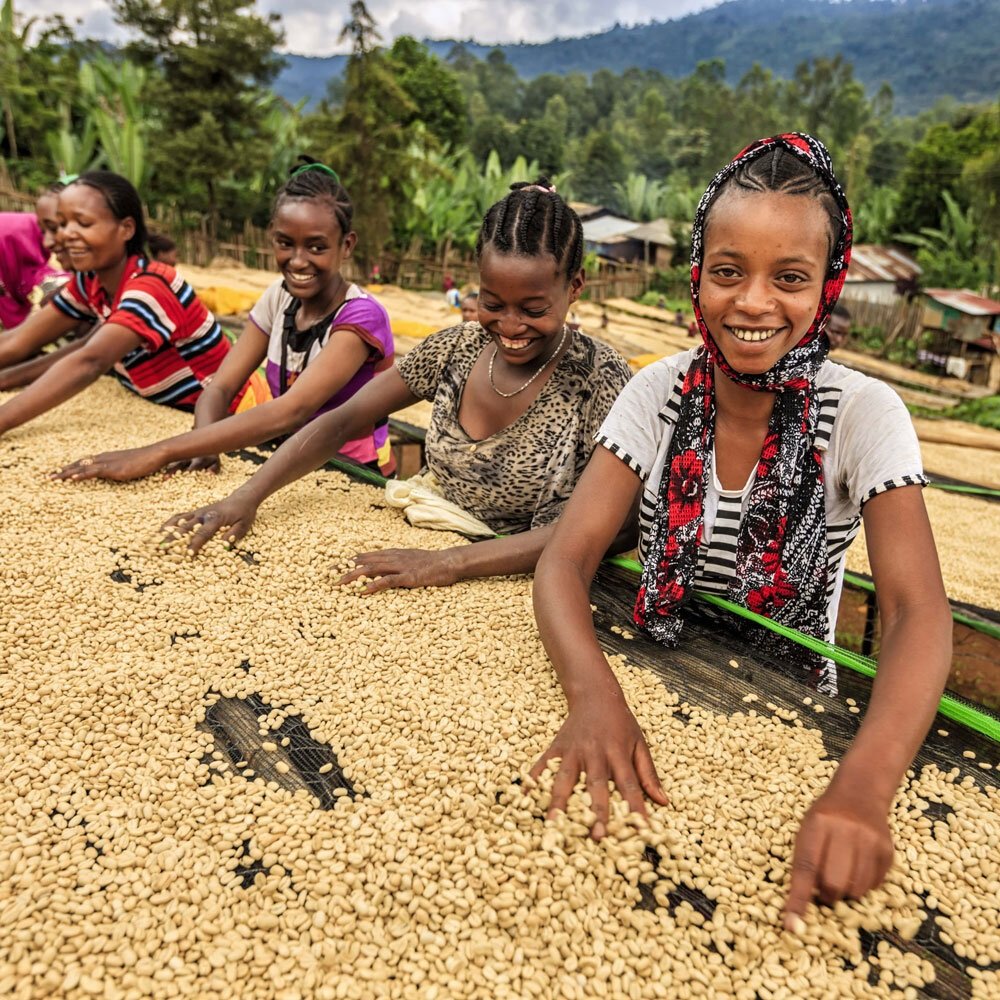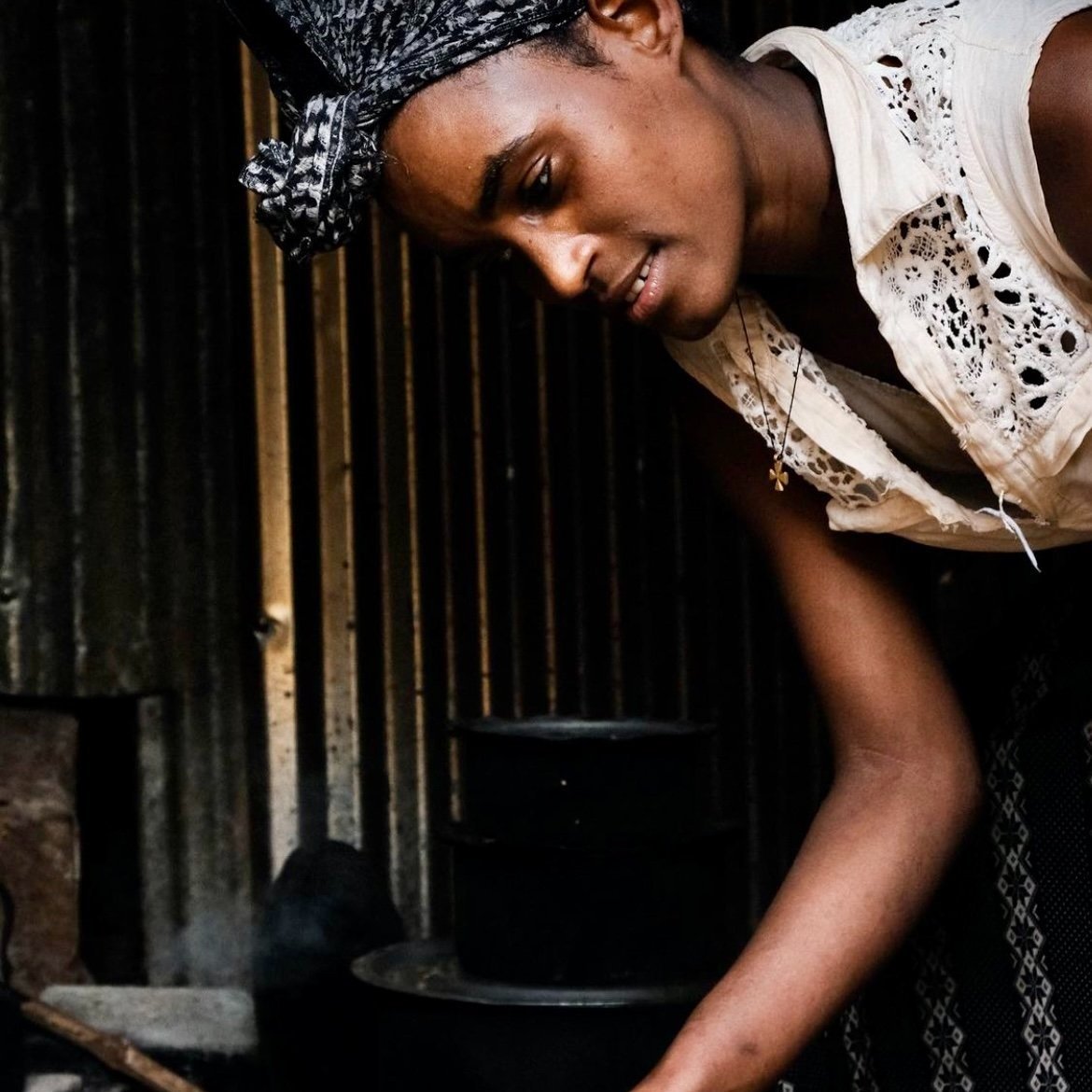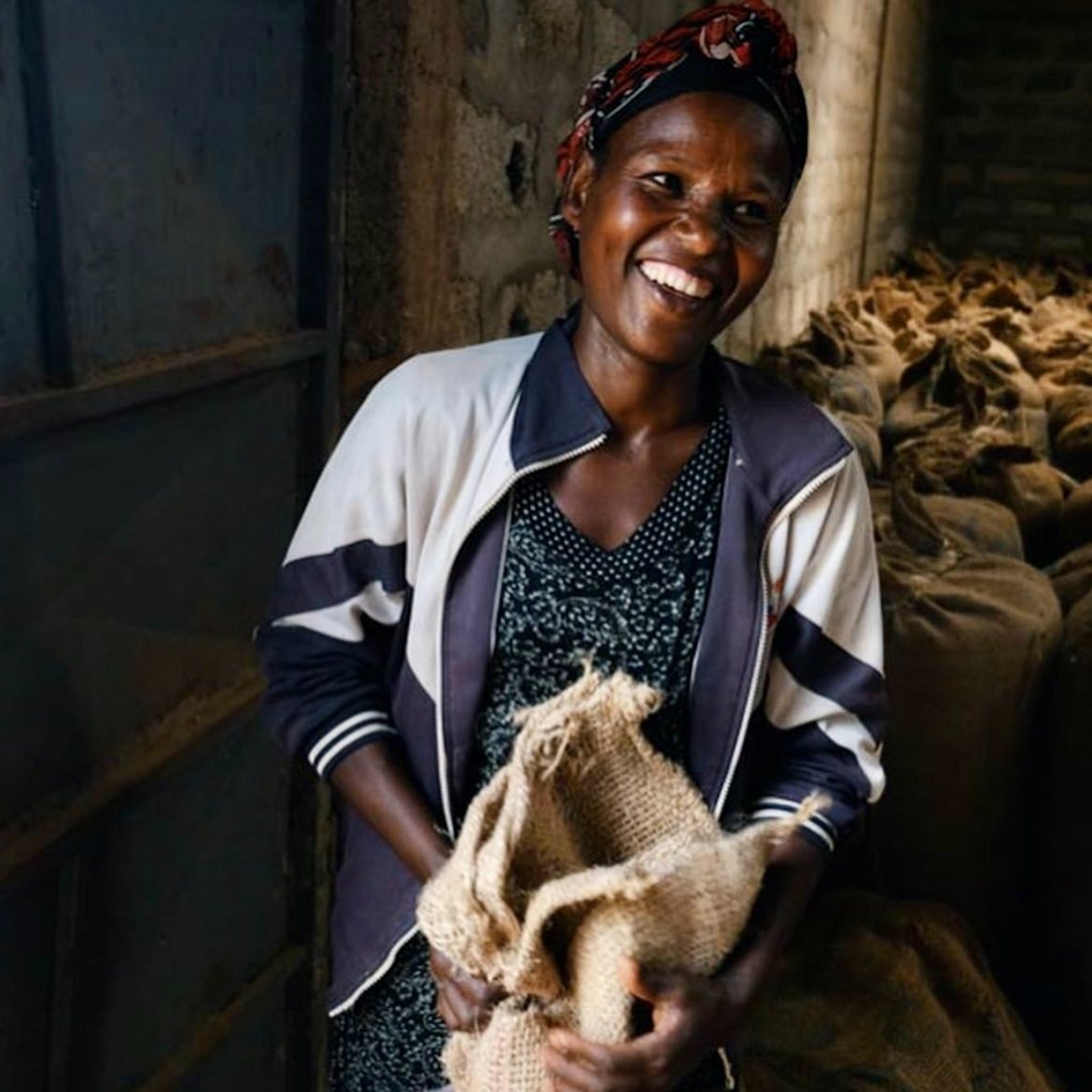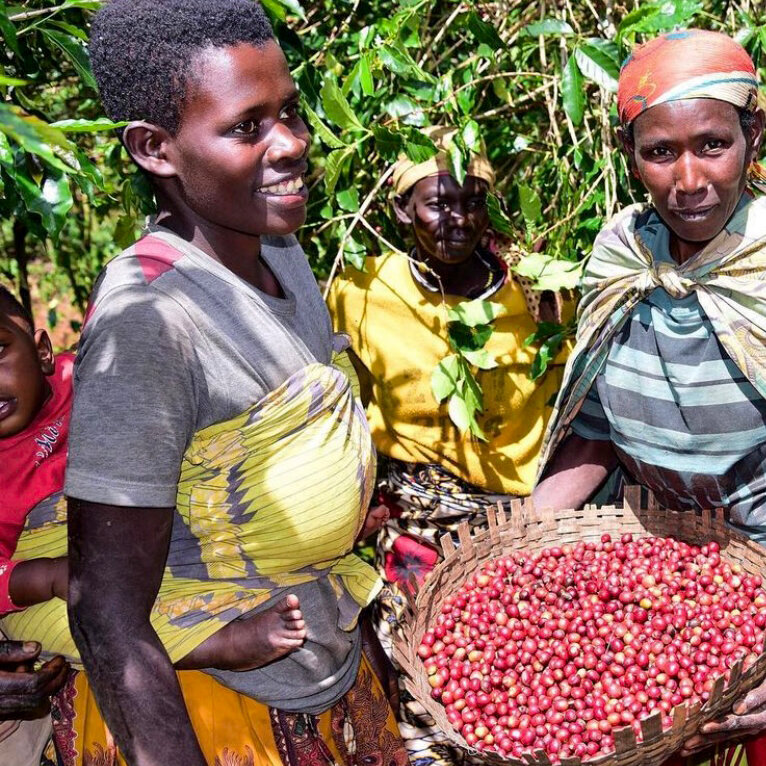Kirinyaga Coffee Beans: Kenya
Kirinyaga Coffee Beans: Kenya
This is where Mukurima, the Co-Founder was born and bred in his grandfather’s coffee farm. The region is home to the Agikuyu community, known for their entrepreneurial skills and hard work. If God has a favorite coffee, it would be Kirinyaga coffee! With every bag, you get:
Sustainably Sourced: Our coffee beans are ethically sourced from farms that pay fair wages to hardworking farmers.
Empowering Farmers: We believe in putting profits back into the hands of the farmers who work tirelessly to produce these exceptional beans.
Quality Assurance: Our beans undergo rigorous quality checks to ensure that you receive only the finest, freshly roasted coffee beans.
A World of Aromas: Explore a diverse range of tasting notes, from fruity and floral to earthy and spicy, offering a delightful sensory journey with every cup.
Versatile Brewing: These beans are perfect for various brewing methods, including drip, espresso, French press, and more, allowing you to craft your ideal coffee experience.
Kenyan Heritage: Immerse yourself in the rich coffee culture of Kenya, where coffee is more than a beverage; it's a tradition, a way of life, and a source of pride.
Every bag is 12 Oz which translates to ~32 cups of fresh coffee
Never Run Out of Freshly Roasted Coffee: If you prefer, subscribe to our coffee delivery service and say goodbye to the hassle of running out of your favorite brew.
Specialty Coffee Experience: Each batch is carefully selected and roasted to perfection, guaranteeing a consistent and exceptional coffee experience.
Cupping: Mandarin, Rhubarb Pie, Riesling, and Dried Apricot
Drying Method: Sun-dried on raised beds
Free Shipping: Enjoy the convenience of free shipping with every order above $50
Flavor Profile: Fruity
Year after year, Kirinyaga coffee has earned top ranking from Coffee Review, an online publication that analyses the quality of beans globally.
Coffee grown in Kirinyaga is well known for ripe, fruit-forward profiles. Add to this one of coffee's best accidents—the diminutive peaberry—and you have a resounding cup. Many believe that the naturally occurring peaberry—where the coffee cherry produces one plump, round bean instead of two halves—doubles the flavor and sugar of the seed and is easier to roast.
Whether it’s the fine soil, the high elevation, or the influence of the otherworldly peaberry—this coffee sparkles. Imagine verdant kiwi, with its star-like glitter of black seeds, crossed with the tropical notes of lemongrass.
Region: Kirinyaga, Kenya
Coffee from the Kirinyaga region of Kenya flourishes in rich, volcanic soil and after selective hand picking, is hand processed in fresh water. Full of sweet complex flavors, lively acidity, and rich velvet body, specialty lots of Kirinyaga coffees carry a distinct terroir that some call classic Kenyan flavor. Here the climate is very like a European summer and much of the coffee grows in the shade of towering over story.
Kirinyaga has both smallholders and medium-sized farms, some of which have their own processing equipment. For those that don’t, wet mills are accessible at local cooperative sites. Co-op member farmers can utilize any mill they choose, and unlike many coffee producing nations, Kenya’s traditional auction system rewards higher quality with higher prices, creating incentive for excellence both in coffee cultivation and processing.
Mt. Kenya, at the helm of Kenya’s Central Province, is the second tallest peak on the continent of Africa and a commanding natural presence. The mountain itself is a single point inside a vast and surreal thicket of ascending national forest and active game protection communities. The central counties of Kenya extend from the center of the national park, like six irregular pie slices, with their points meeting at the peak of the mountain. It is along the lower edge of these forests where, in wet, high elevation communities with mineral-rich soil (Mt. Kenya is a stratovolcano) many believe the best coffees in Kenya, often the world, are crafted. Kirinyaga county is certainly well-known among these central counties for its jammy, exuberant coffees.
Kenya’s coffee is dominated by a cooperative system of production, whose members vote on representation, marketing and milling contracts for their coffee, as well as profit allocation. It’s not perfect, and in Kenya in particular the number of individual margins sliced off an export price before payment reaches the actual farms is many, leaving only a small percentage to support coffee growth itself, and most often this arrives many months after harvest. However, Kenya coffees are sold competitively by quality, which means well-endowed counties like Kirinyaga achieve very high average prices year after year, and the smallholders here with a few hundred trees at the most are widely considered to be middle class.
Kenya is of course known for some of the most meticulous at-scale processing that can be found anywhere in the world. Bright white parchment, nearly perfectly sorted by density and bulk conditioned at high elevations is the norm, and a matter of pride, even for generations of Kenyan processing managers who prefer drinking Kenya’s tea (abundantly farmed in nearby Muranga and Kiambu counties) to its coffee.
Ample ground and river water supply in Kirinyaga has historically allowed factories to wash, and wash, and soak, and wash their coffees again entirely with fresh, cold river water. Conservation is creeping into the discussion in certain places--understandably in the drier areas where water, due to climate change, cannot be as taken for granted—but for the most part Kenya continues to thoroughly wash and soak its coffees according to tradition. Cooperatives at Kabare FCS are no different, sorting their pulped and fermented coffee into 4 different density grades with the use of fresh nearby water, and conditioning the moisture of each grade independently during drying, before transport to the mill.
MUKARIMU COFFEE ESTATE
The estate is a combination of 10 small and medium farms totaling 33 acres (13ha) owned by Charles Mutwiri. Coincidentally Mukarimu translates to the Swahili word for generous or hospitable and this embodies the spirit of Charles Mutwiri.
The name Mukarimu is derived from the first two letters of Charles’s ancestral lineage.
Muthuuri – Great Grand Father
Kaguora – Grand Father
Rintagua – Father
Mutwiri – Son and current administrator.
Charles Mutwiri is not your ordinary Kenyan coffee farmer. He is a man with a vision to transform his community and inspire future generations. He is frustrated by the ‘poor coffee farmer’ tag. He will tell you that he is not a poor coffee farmer. He believes in hard work and receiving a fair share of his work.
In 1979, Charles inherited 150 coffee trees, producing 700 kgs of coffee cherry from his father. Coffee farming was established in the 1970s by his father Mr. Rintagua. Mukarimu farm now comprises 17,000 coffee trees producing about 80,000 kgs of the coffee cherry. Despite the volatility of the coffee market, the 1986 global collapse of coffee prices, and the collapse of the Kenya coffee cooperative movement, Charles has remained committed to coffee and has never thought about abandoning the crop. His incredible work ethic, resilience, and commitment to his community have seen him inspire other farmers in the Meru region to get back to coffee farming. The passion for coffee runs through his family. His daughter is a coffee farmer with 500 coffee trees, and his other daughter is in college pursuing a degree in coffee management and farming.
Social Impact
Charles is a change missionary. Using coffee farming, he is involved in community projects that empower coffee farmers through education, mentorship, leadership, and character development. In 2017, together with Rev. Jacob Keega they started Thuura Coffee Growers and Thuura Organic Women Coffee and distributed 30,000 coffee seedlings to over 150 farmers. The first harvest of this coffee will be available in 2022. Charles is also the coordinator for IMENYA, a partnership of 32 estate coffee farms in the Imenti and Nyambene region of Meru County experience sharing, learning, and moral support.
The Future Is Female
He has helped establish Thuura Women Organic Coffee growers. This group comprises 70 women who are either widows, divorced or have been abandoned by their spouses. Each of these women has 150 coffee trees. Giving them an opportunity to earn income, be owners of capital, and make independent decisions on how to invest this capital was the inspiration behind the coffee.
“Empower Africans Through A Living Wage”












